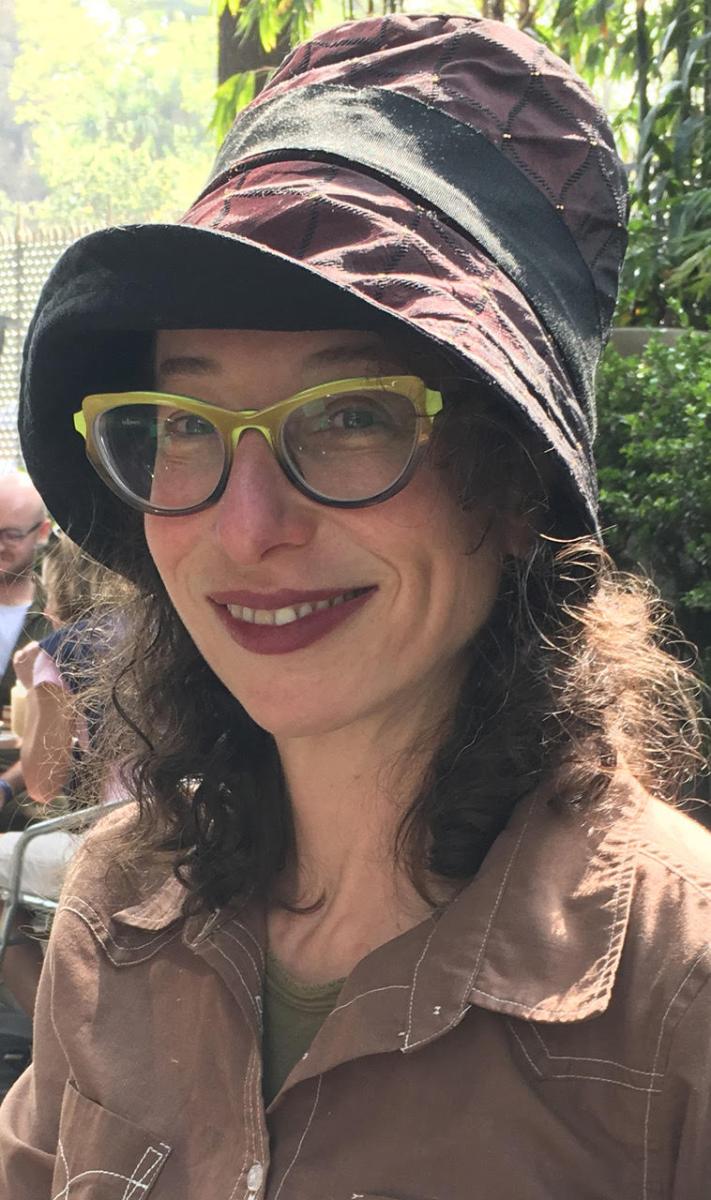
Fellowship Recipient Traces History of Formerly Enslaved Union Spy
By Angela Tudico | National Archives News
WASHINGTON, May 16, 2023 — Lois Leveen, one of two inaugural Cokie Roberts Women’s History Fellows, spent spring 2022 at the National Archives at Washington, DC, researching the history behind the woman known as Mary Bowser, a formerly enslaved Black woman turned Union spy during the Civil War.
This was not the first time that Leveen has researched or written about Bowser. She wrote a novel based on historical rumors that Bowser served as a spy at the Confederate White House in The Secrets of Mary Bowser, published in 2012.
This time Leveen’s research will culminate in a nonfiction work, a biography that uses Bowser’s life to reveal a more expansive hidden history of Black activism during the Civil War and Reconstruction eras.
To tell this story in a new way, Leveen looked at military records, such as correspondence in the Records of U.S. Army Continental Commands, for traces of the real person behind the myth of Mary Bowser, who went by many different names over the course of her life as an enslaved person, spy, and teacher in Reconstruction-era Virginia, Georgia, and Florida.
“Even knowing how to refer to the real figure can be a challenge because this woman used a variety of different first and last names throughout her life,” Leveen explained. “For many formerly enslaved people, including Frederick Douglass, Harriet Tubman, and Sojourner Truth, self-naming was an important way to assert their full personhood.”
Leveen, who considers herself more of a social historian than a military historian, nevertheless found the breadth and depth of military records at the National Archives invaluable to her research.
“To really enter into somebody else’s world, different from ours in so many ways, sometimes even seemingly mundane records about rations or transportation can be so revealing,” Leveen said.
Leveen is a former college professor who now teaches at museums, galleries, libraries, and other nonprofits. She earned her doctorate from the University of California, Los Angeles, in English, her master’s degree in English Language and Literature from the University of Southern California, and is a magna cum laude graduate of Harvard University, with a bachelor’s degree in history and literature.
Despite her multidisciplinary background and years spent researching 19th-century Virginia, Leveen noted challenges of researching individuals in this time period likely familiar to many researchers, historians, and genealogists alike. These include tracking people across states and military units when the records are kept differently in each place, not finding cross-referenced files listed on documents, and reconciling errors in the historical record (like incorrect names).
Leveen said she is grateful for the time the fellowship allowed her to carefully explore the 19th-century federal records. Time, which she found simultaneously a luxury and a necessity when looking for traces of Bowser in the historical record, as well as larger trends of Black activism in Virginia, is also a key piece of her advice to others researching this era.
“You have to love the process,” Leveen advised. “If all you’re thinking about is the product, it is going to be immensely frustrating. And so I am grateful I got to take the time with records, to realize that sometimes the accidental discovery is the most revealing discovery.”
She is conducting her research as an inaugural recipient of the Cokie Roberts Women’s History Fellowship. Supported by the National Archives Foundation, the fellowships are awarded to early to mid-career historians, journalists, authors, or graduate students who perform and publish new research to elevate women’s history using records held by the National Archives.
The fellowship is supported by the National Archives Foundation’s Cokie Roberts Research Fund for Women’s History, which launched in 2019 to honor noted author and journalist Cokie Roberts, who spent her career shining light on the stories of many women who had an impact on U.S. history.
“Cokie was a leader on our board and a lifelong advocate for the Archives,” said Jim Blanchard, President and Chair of the National Archives Foundation Board of Directors and former Michigan Governor. “These fellowships are a wonderful tribute to her ongoing inspiration to the field of women’s history.”

